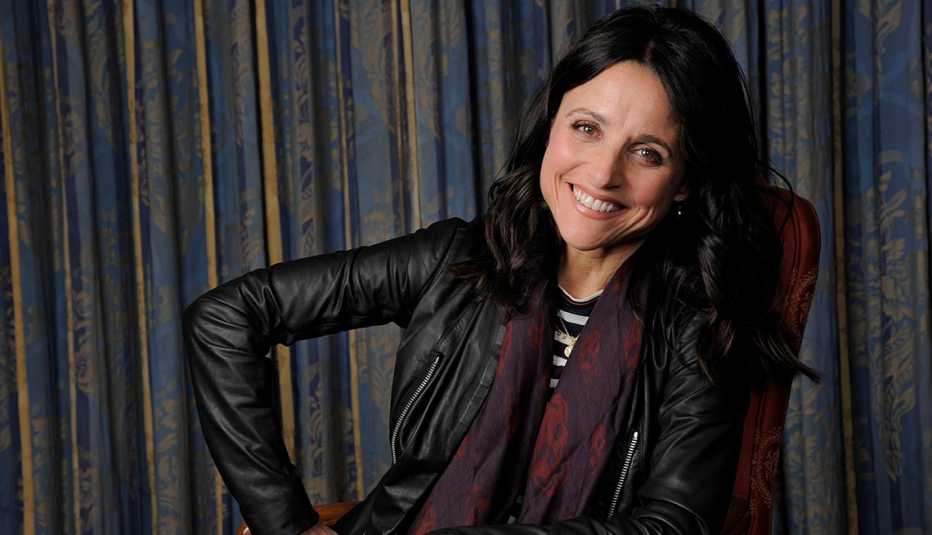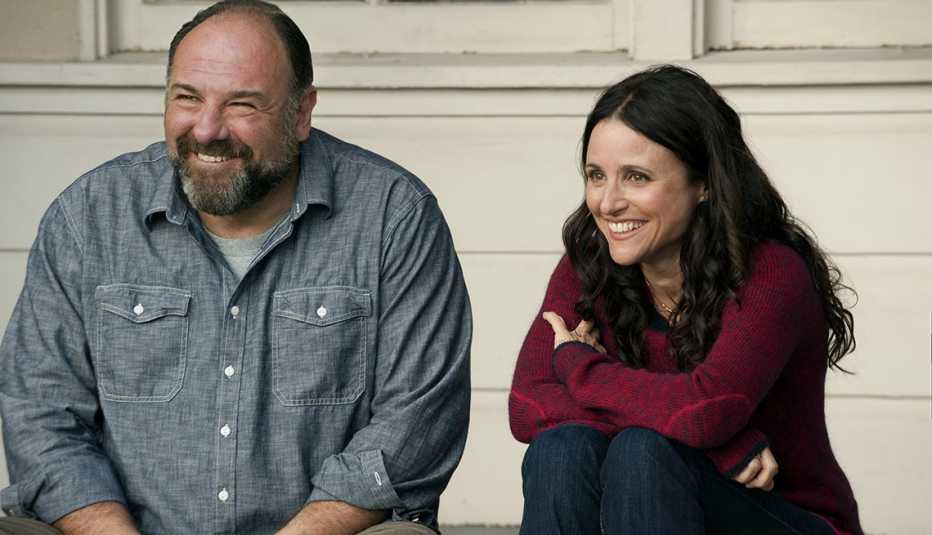Staying Fit


Julia Louis-Dreyfus, 57, back to health after chemotherapy and fresh from shooting the 2019 season of her smash hit Veep, will receive the Kennedy Center's Mark Twain Prize for American Humor on Sunday (in a ceremony to be telecast on PBS on Nov. 19 at 9 p.m. ET), with teasing tributes by Stephen Colbert, Bryan Cranston, Tina Fey, Ilana Glazer, Tony Hale, Abbi Jacobson, Keegan-Michael Key, Kumail Nanjiani and Jerry Seinfeld. “As a student of both American history and literature, the fact that Mr. Twain himself will be presenting the award to me in person is particularly gratifying,” quipped Louis-Dreyfus.
It won’t be her first rodeo on the red carpet. Unlike previous Twain Prize winners Steve Martin, David Letterman, Bill Murray, Tina Fey and Carol Burnett, Louis-Dreyfus holds the world record for Emmy Award wins (11, including an unprecedented six in a row for Veep). She shared the AARP Movies for Grownups Award with the late James Gandolfini for their film (his last), 2014’s Enough Said, and this year she broke another record by winning her ninth Screen Actors Guild Award, beating previous SAG record holders Julianna Margulies, 52, and Alec Baldwin, 60.


AARP Membership— $12 for your first year when you sign up for Automatic Renewal
Get instant access to members-only products and hundreds of discounts, a free second membership, and a subscription to AARP the Magazine.
Among iconic comedy revolutionaries, Louis-Dreyfus blends the high-speed, high-IQ irony of Preston Sturges (The Great McGinty) with a feminist-era update of TV personae such as Lucille Ball’s and Mary Tyler Moore’s. Louis-Dreyfus made history with her idiosyncratic comic gift of self-deprecation and her equal gift of self-assertion and fearless hijinks. As she told Variety, “I’ve always admired women who are not afraid of making themselves look bad or foolish to get a laugh,” citing Ball, Moore, Madeline Kahn, Teri Garr, Valerie Harper and Cloris Leachman as her inspirations.


































































More From AARP
Fall TV Preview 2023
See what's best on broadcast and streaming TV